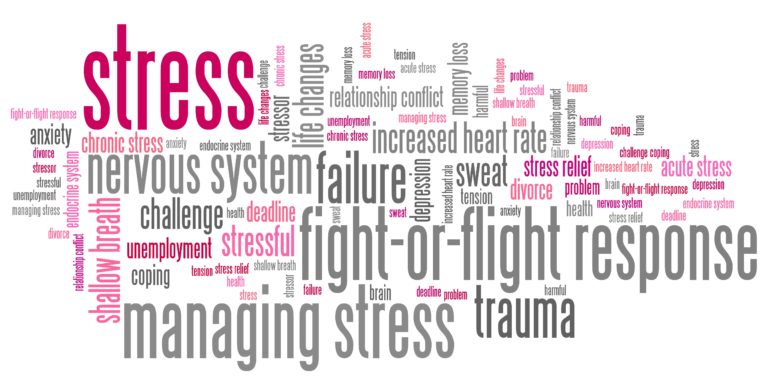Discussions of how people respond to threatening or potentially traumatic situations often focus on the “fight or flight” response. But did you know these aren’t the only trauma response types? In today’s post, we look at four common ways that people respond to traumatic experiences.
What Is Trauma?
Before we delve into the four trauma response types, we should take a moment to clarify exactly what we’re referring to when we use the word trauma.
In a mental health context, trauma describes psychological damage that occurs in the aftermath of one or more life-threatening events. People can also become traumatized by repeated, ongoing exposure to certain types of experiences.
Many people associate trauma with warfare. And while military combat can absolutely be a source of trauma, it is far from the only possible cause. Other occurrences that can cause psychological trauma include:
- Physical attacks
- Sexual assault
- Verbal harassment
- Abuse and neglect
- Automobile accidents
- Acts of terrorism
- Violent weather, such as tornadoes or typhoons
- Serious medical problems
In general, if an event can cause a person to fear for their life, or for the life of someone else, it can cause trauma. A person can be traumatized after directly experiencing such an event, witnessing something that happens to someone else, or (as in the case of emergency medical technicians or hospital personnel) frequently being exposed to the aftereffects of traumatic experiences.
Feeling sad, afraid, or otherwise upset after such an event is a normal and healthy response. But if a person’s negative emotions persist for an extended period of time, or if they become so disruptive that the impede a person’s ability to function, then trauma may be to blame.
What Is A Trauma Response?
When a person is confronted with a perceived threat, their body may react virtually instantaneously. For example, their brain may release a flood of hormones such as cortisol and adrenaline. Their heart rate may increase, and their breathing may become more rapid.
These and other automatic responses are designed to be temporary actions, with the goal of protecting the person by preparing them to fight or flee. But when someone struggles with trauma, their system may stop functioning properly, which can cause them to respond to perceived threats that don’t actually exist.
If their brain cannot properly identify and act upon threats, people may find themselves employing the following trauma response types even when they’re not at risk of being harmed:
The Fight Response
This trauma response type is characterized by impulsivity, argumentativeness, and defensiveness. When critiqued, someone who employs the flight response may emphatically deny responsibility and/or forcefully attempt to shift blame.
They may be hypersensitive to even the smallest perceived slights and unwilling to either accept blame or concede that they are in the wrong. This can be extremely disruptive in work or school environments, as well as within the context of interpersonal relationships.
The Flight Response
People who use the flight response will attempt to keep themselves safe by avoiding anything that looks like a conflict. They can often appear to be restless or jumpy as a result of their hypervigilance, and they are likely to have an exaggerated startle response.
In work or school situations, they may pursue perfectionism as a means of preventing criticism. This, of course, can be a source of considerable stress, which they may attempt to alleviate via substance abuse or other maladaptive behaviors.
The Freeze Response
Prey animals such as rabbits, squirrels, and deer sometimes become rigidly still when they sense the presence of a predator. People who employ the freeze response act in a similar manner. When criticized or faced with a challenge, they may become stoic and withdrawn, speak in a monotone voice, and display little to no expressiveness – almost as if they are willing themselves to disappear.
At its extreme, the freeze response may be similar to a period of depersonalization or derealization, where the individual feels as though they are momentarily detached from their thoughts, emotions, and/or surroundings.
The Fawn Response
People who use this trauma response type may respond to potential conflicts by overcompensating in their efforts to please the other person. The fawn response can include apologizing for problems that they did not cause, attempting to preclude criticism with effusive flattery, and putting the needs of others over their own.
In the context of a friendship or romantic relationship, the fawn response can put a person at risk of being abused, taken advantage of, and pushed into codependency.
How Trauma Response Treatment Can Help
If you or someone that you care about has been exhibiting behaviors that are consistent with one of the trauma response types in the previous section, professional help may provide the best path forward. When a person receives proper care to help them address and overcome the impact of untreated trauma, they can experience a significant improvement in quality of life.
But how can you be sure that you’ve found the right source of trauma treatment for yourself or your loved one? Asking the following questions of any providers that you are considering can help:
- What levels of care and types of therapy does your center offer?
- How will you determine which programs and services are right for me?
- Can you discuss your approach to trauma-focused care?
- How long will I need to remain in treatment – and how will you make this determination?
- What does a successful experience at your center look like?
- Do you offer family therapy or other family support services?
- What types of discharge planning or aftercare support do you provide?
- Does your center accept my insurance?
Representatives of any reputable treatment centers will be happy to answer these and any other questions you have. At Arbor Wellness, we want our patients to always have the information they need, so that they can play an active role in their treatment and take ownership of their recovery.
More: How to Heal Your Nervous System From Trauma?
Begin Trauma Response Treatment in Nashville
Arbor Wellness offers personalized residential and outpatient programming for adults whose lives have been disrupted by untreated trauma and other mental health concerns. At our trauma treatment center in Nashville, Tennessee, we also care for patients whose mental health struggles are accompanied by co-occurring substance abuse and addiction.
We understand the many ways that trauma can undermine a person’s efforts to live a productive and satisfying life, and we are committed to working closely with each patient to provide the focused services that meet their unique needs. When you choose our center, you can expect to work in active collaboration with a team of skilled professionals who truly care about you, and who will treat you with the respect you deserve.
To learn more or to schedule a free assessment, please visit our Admissions page or call our center today.

























